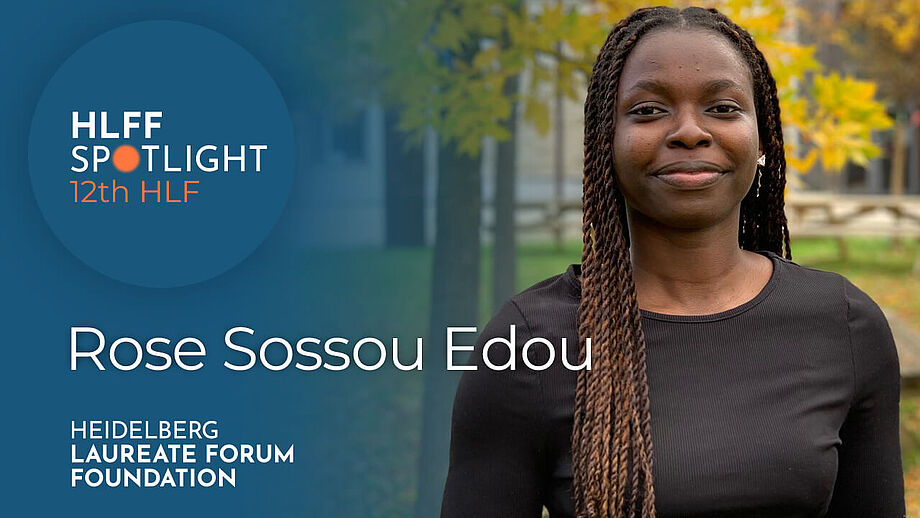Rose Sossou Edou
The Heidelberg Laureate Forum has a single purpose: To provide some of the brightest minds in mathematics and computer science with the space and time to make connections and find inspiration. The HLFF Spotlight series shines a light on some of the brilliant individuals attending the event.
Rose Sossou Edou is a PhD student at École nationale des ponts et chaussées, conducting her research across two laboratories: CERMICS (Center for Training and Research in Mathematics and Scientific Computing) and LVMT (City, Mobility, Transport Laboratory). Her work focuses on Dynamic Pricing in Intermediate Transport modes: Limits and Challenges, an interdisciplinary project combining mathematics and socio-economics. She explores how dynamic pricing can be used as an effective tool to regulate and optimize shared and on-demand transport systems. She is attending the 12th HLF as a young researcher.
What first inspired you to pursue a career in your field?
Very early on, I realised that mathematics could be used for more than just proving theorems: It can model real life albeit approximately, structure decisions, improve systems. Where I come from, pursuing a career in mathematics often meant becoming a teacher, and even less so when you are a woman. So I had to go against the grain. And it was with joy and determination that, after completing my bachelor's degree in mathematics, I chose that path which allowed me to combine rigorous theory with practical application, rigour and action, abstraction and reality. It still guides me today.
What has been the most exciting moment in your academic career so far?
Arriving in France confirmed I had made the right choice. I studied in the ORCO Master’s program (Operations Research, Combinatorial and Optimization) in Grenoble. Then, I did an internship with EDF, the French electricity company. I was grateful to have met and worked alongside very passionate researchers in both applied math and industry. I’m especially proud of the theoretical results we achieved. These results led to concrete applications for EDF. This balance between theory and practice reassures me as I pursue my PhD in the same field, focusing on transport.
What is the most important or meaningful development happening in your field right now and why?
One of the most exciting things happening in applied math right now is the growing of collaboration of disciplines. In my PhD, the math remains at the core, but I rely on social sciences to better understand human behavior and improve the models. Another big trend is combining AI and machine learning with classic math tools to make smarter and more flexible solutions. Plus, including uncertainty and robustness in models helps handle the unpredictability of real life. All these advances make applied math more powerful and relevant today.
What are you most excited about for the upcoming event?
Participating in the Heidelberg Laureate Forum is a unique opportunity for me to connect with renowned scientists. These interactions will help me understand their backgrounds and innovative approaches, as well as their ways of designing research, which will better guide my own career path.
